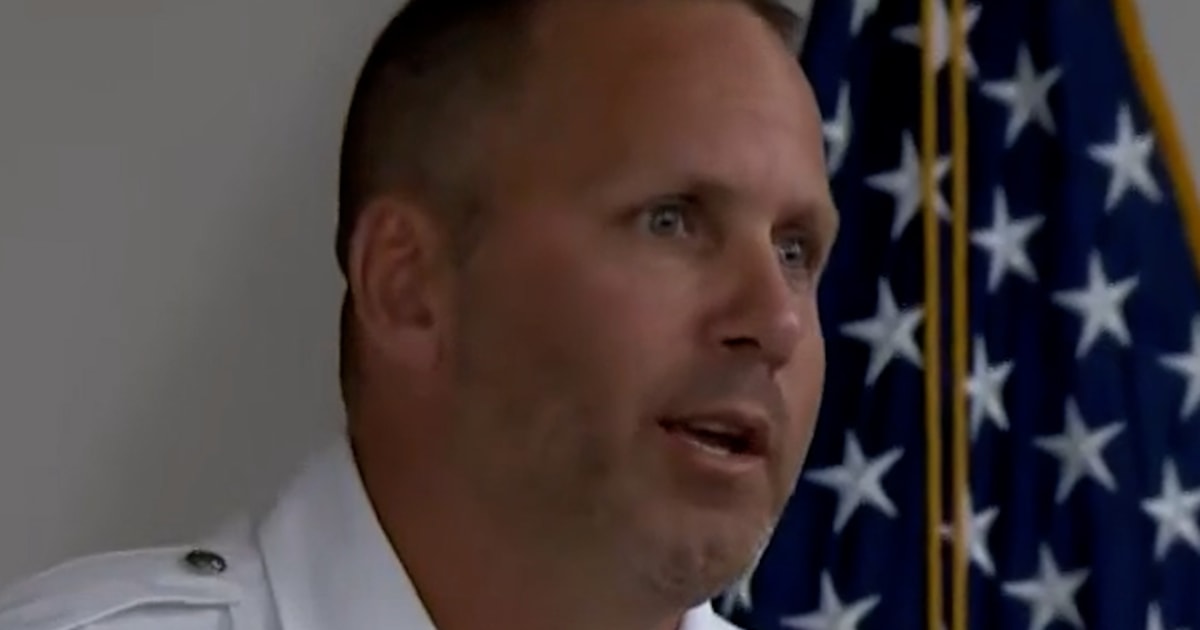President Donald Trump has assured Arab leaders that he will not allow Israel to annex the already occupied West Bank, sources told NBC News, amid fears of retaliation from the U.S. ally after a host of countries moved to recognize Palestinian statehood
Source link
Sept. 25, 2025, 8:50 AM EDT / Updated Sept. 25, 2025, 9:04 AM EDTBy Andrea Mitchell, Abigail Williams and Chantal Da SilvaPresident Donald Trump has assured Arab leaders that he will not allow Israel to annex the already occupied West Bank, sources told NBC News, amid fears of retaliation from the U.S. ally after a host of countries moved to recognize Palestinian statehood.Trump made the comments Tuesday, according to two sources who were in the room, as he presented his 21-point plan for peace in the Middle East to Arab leaders gathered in New York for the United Nations General Assembly. The comments were first reported by Politico.Trump’s special envoy Steve Witkoff said the meeting with leaders from countries including Qatar, the United Arab Emirates, Jordan, Egypt and Turkey was “productive.” He said a breakthrough could be imminent in efforts to bring an end to the war in the Gaza Strip, where Israel has continued a deadly military campaign to take over Gaza City.Trump calls the recognition of a Palestinian state ‘a reward’ for Hamas02:23“We presented what we call the Trump 21-point plan for peace in the Mideast, in Gaza,” Witkoff said at the Concordia Annual Summit, a conference on the sidelines of the General Assembly. “I think it addresses Israeli concerns, as well as the concerns of all the neighbors in the region. And we’re hopeful, and I might say even confident, that in the coming days, we’ll be able to announce some sort of breakthrough,” he added.Israel has intensified its attacks as troops pushed deeper into Gaza City in recent days.Moiz Salhi / Anadolu via Getty ImagesIt was not immediately clear what advances might have been made, with past promises of progress in talks failing to yield a deal to end Israel’s assault on Gaza and see hostages still held in the enclave released. The spiraling conflict in the Middle East has been a focal point of the General Assembly this week, with Palestinian President Mahmoud Abbas expected to address the gathering Thursday, albeit by video after the U.S. last month revoked his visa, along with those of other Palestinian Authority officials. Speaking with Gulf foreign ministers Wednesday during the assembly, Secretary of State Marco Rubio said: “We understand very clearly that the situation in Gaza, the situation with Israel and Gaza, is a key concern for everyone in this room here today.”“We want this conflict to end,” he said. “We want it to end immediately.”Rubio added that “some very important work is ongoing, even as we speak, and hoping to achieve this as soon as possible.”Funeral services for people killed in an Israeli military strike, outside Al-Aqsa Hospital in Deir al-Balah on Wednesday.Abdel Kareem Hana / APTrump’s assurances to Arab leaders that he would not let Israel annex the West Bank came after right-wing members of Israeli Prime Minister Benjamin Netanyahu’s fragile government coalition called for the move as a string of countries, including France, the United Kingdom, Canada, Australia and Portugal formally recognized Palestine as a state. Palestinians envision the West Bank as a core territory for an internationally recognized Palestinian state, alongside Gaza and east Jerusalem. Annexation of the territory, which has been occupied by Israel since 1967, would further imperil that cause. The bodies of people killed by an Israeli army attack on the Firas Market in Gaza City, on Wednesday.Hamza Z. H. Qraiqea / Anadolu via Getty ImagesNetanyahu, who was traveling to New York on Thursday before addressing the General Assembly on Friday and meeting Trump next week, has declared that there will never be a Palestinian state under his watch.Trump told the U.N. this week that the recognition moves risked rewarding Hamas.Israel has already pushed ahead with a widely condemned settlement plan that would effectively split the West Bank in two, further fracturing what Palestinians envision as their future state.Deadly settler violence and Israeli military operations have also increased in the Palestinian territory.UAE leaders have said annexation of the West Bank would be a red line for the influential Gulf state, blocking any future recognition of Israel and preventing the completion of Trump’s landmark Abraham Accords that sought to establish diplomatic normalization between Israel and several Arab states.Andrea MitchellAndrea Mitchell is chief Washington correspondent and chief foreign affairs correspondent for NBC News.Abigail WilliamsAbigail Williams is a producer and reporter for NBC News covering the State Department.Chantal Da SilvaChantal Da Silva reports on world news for NBC News Digital and is based in London.




